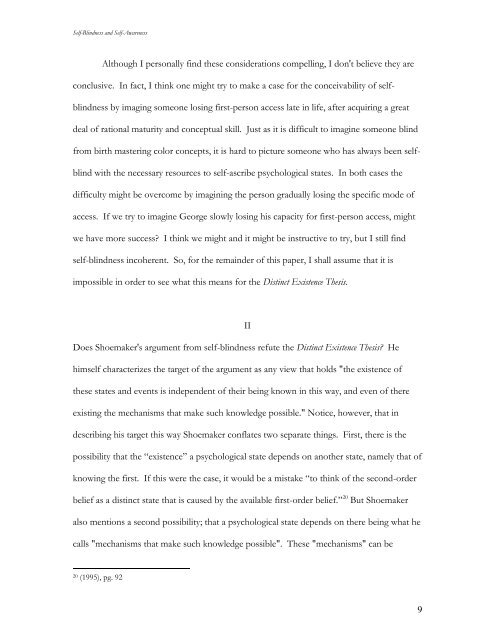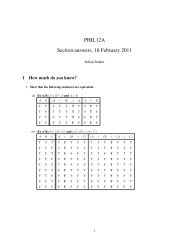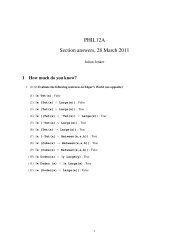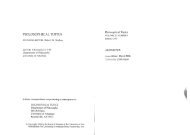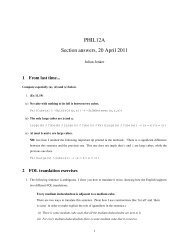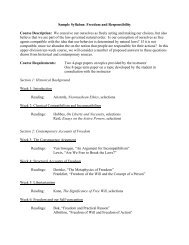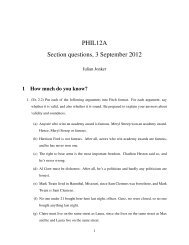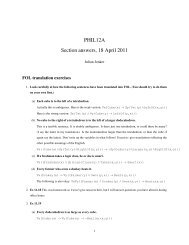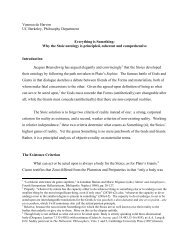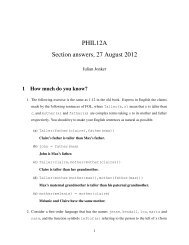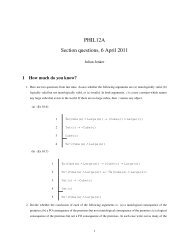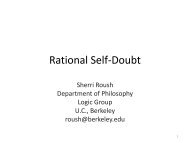SELF-BLINDNESS AND SELF-AWARENESS - Philosophy
SELF-BLINDNESS AND SELF-AWARENESS - Philosophy
SELF-BLINDNESS AND SELF-AWARENESS - Philosophy
You also want an ePaper? Increase the reach of your titles
YUMPU automatically turns print PDFs into web optimized ePapers that Google loves.
Self-Blindness and Self-AwarenessAlthough I personally find these considerations compelling, I don't believe they areconclusive. In fact, I think one might try to make a case for the conceivability of selfblindnessby imaging someone losing first-person access late in life, after acquiring a greatdeal of rational maturity and conceptual skill. Just as it is difficult to imagine someone blindfrom birth mastering color concepts, it is hard to picture someone who has always been selfblindwith the necessary resources to self-ascribe psychological states. In both cases thedifficulty might be overcome by imagining the person gradually losing the specific mode ofaccess. If we try to imagine George slowly losing his capacity for first-person access, mightwe have more success? I think we might and it might be instructive to try, but I still findself-blindness incoherent. So, for the remainder of this paper, I shall assume that it isimpossible in order to see what this means for the Distinct Existence Thesis.IIDoes Shoemaker's argument from self-blindness refute the Distinct Existence Thesis? Hehimself characterizes the target of the argument as any view that holds "the existence ofthese states and events is independent of their being known in this way, and even of thereexisting the mechanisms that make such knowledge possible." Notice, however, that indescribing his target this way Shoemaker conflates two separate things. First, there is thepossibility that the “existence” a psychological state depends on another state, namely that ofknowing the first. If this were the case, it would be a mistake “to think of the second-orderbelief as a distinct state that is caused by the available first-order belief.” 20 But Shoemakeralso mentions a second possibility; that a psychological state depends on there being what hecalls "mechanisms that make such knowledge possible". These "mechanisms" can be20 (1995), pg. 929


